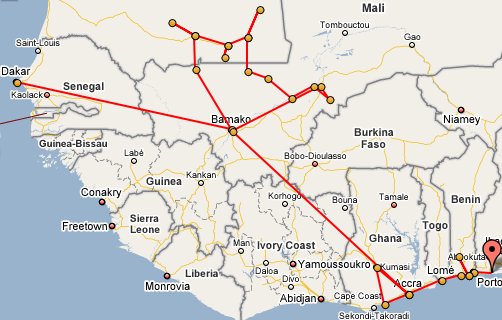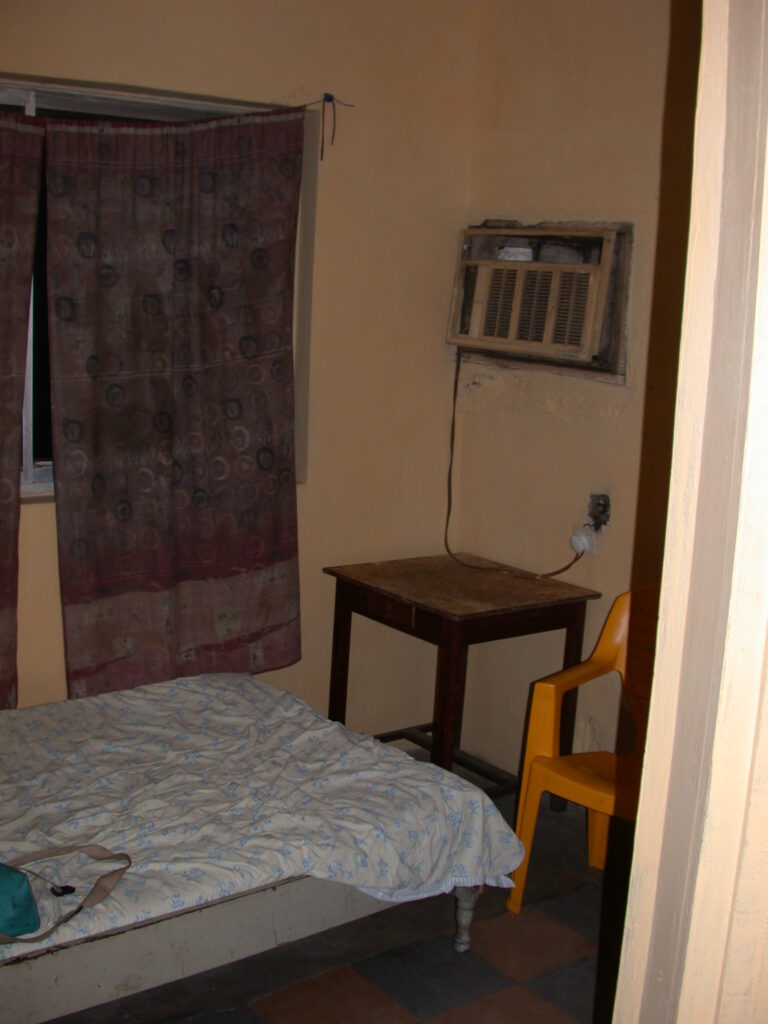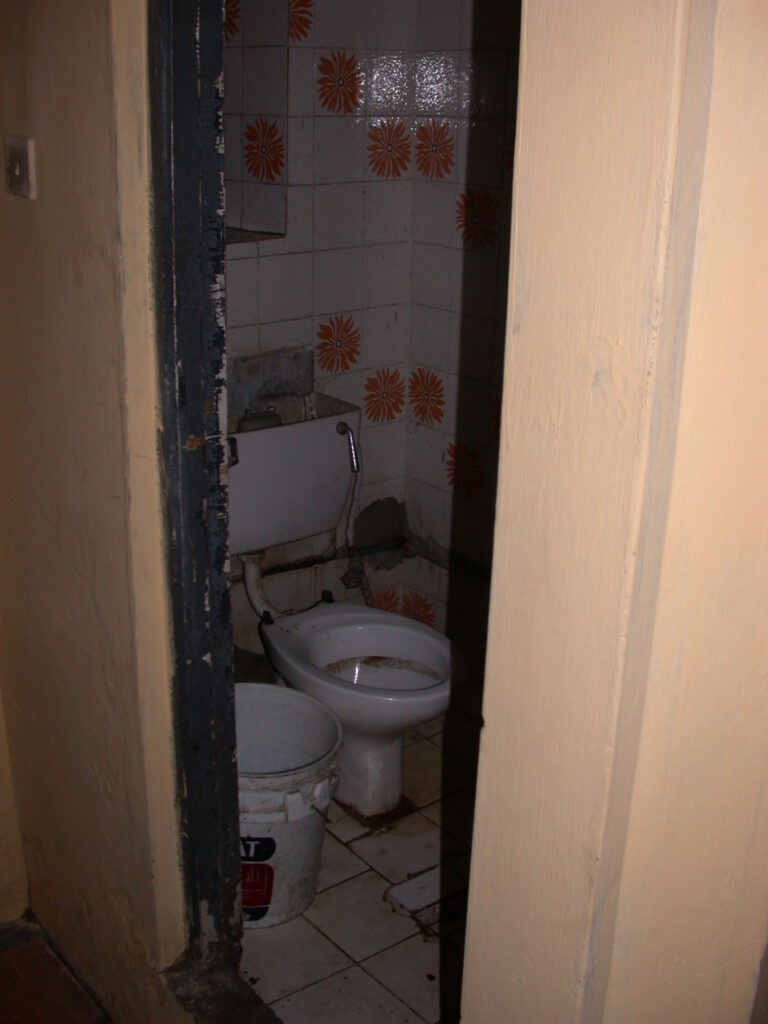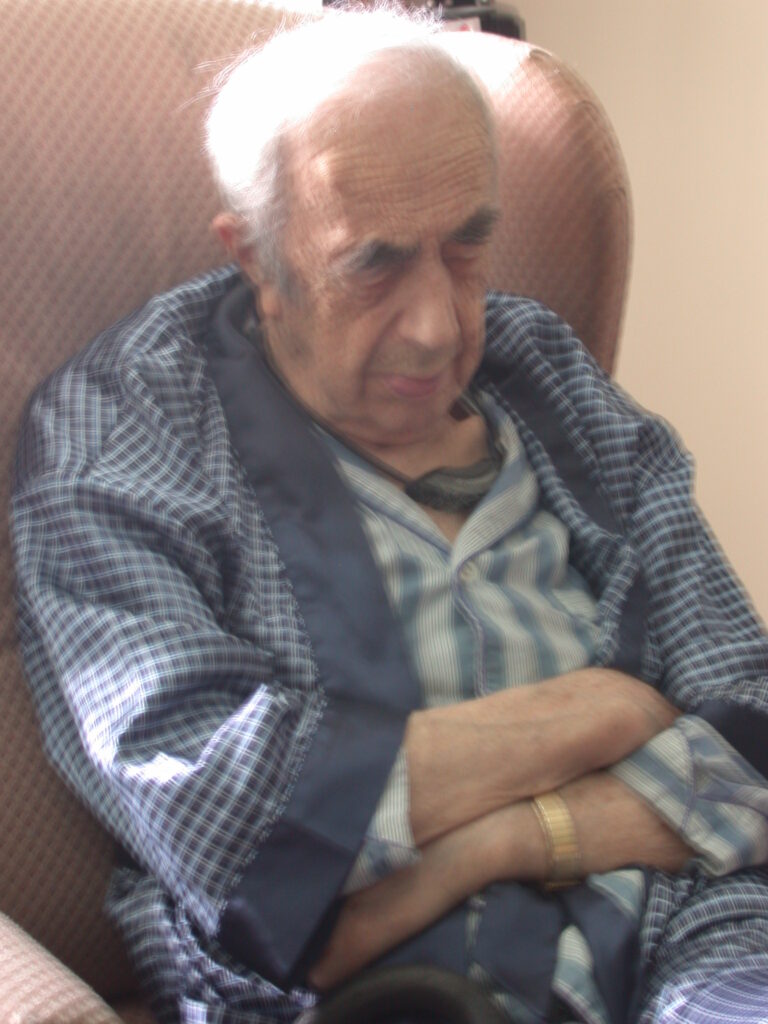December 18, 2007, Ritz Hotel, Lagos, Nigeria
The next morning I returned to Cotonou for the visa, which I finally got, then I headed for the station to take a shared taxi to Lagos. After waiting for some hours and watching one taxi driver purposefully leave without me, I realized it was getting late enough in the day that if I still tried going to Lagos, I would arrive there at night, something I really didn’t want to do.
Instead, I got a ride from one of the taxi drivers to a hotel to try again the next morning for Lagos — the drive explained that taxi drivers wouldn’t want to try carrying me over the border due to border control delays. He suggested instead taking a shared taxi to Seme at the border, then crossing alone and picking up a vehicle for Lagos on the Nigerian side of the border.
The border crossing, starting from Cotonou in Benin, itself was daunting. I tried the day before yesterday, but taxi drivers wouldn’t take me, even from the station where such taxis usually depart. After three hours wait, I found out why — tourists take longer to pass through the border, thus slowing the workday of the driver who then may earn less money. The solution the drivers proposed was for me to wake up at 4am to take a shared taxi to Seme at the border, then walk through the border crossing and pick up another taxi on the Nigerian side of the border.
The border crossing was difficult, with the Benin border control trying for a 5,000 CFA bribe which I simply refused to give, so they kept me waiting for awhile. Then, I had to drag my bags across, which is never fun since the terrain is uneven and bumpy or sandy. On the Nigerian side, a border control guy mentioned he had the power to turn me away. I just told him it would be a shame not to include Nigeria in my book. Eventually, he too relented and let me through.
The border crossing did in fact take awhile, first because I asked for a name, stared down, and refused to bribe the Benin passport control official on the way out (he had asked for 5000 CFA and I had already paid 10,000 CFA for a 48-hour transit visa and 12,000 for a visa extension). Then, endless Nigerian petty officials checked me for one thing or another, with one pointing out to me that he could turn me back at the border. I just told him what a shame I thought it would be if my historical novel got written without including Nigeria. He told me he had read many histories of Nigeria, implying mine was not really needed, but eventually let me pass. Then, by around 5:30am or so, I had to walk dragging and rolling my heavy bags on uneven and sometimes sandy terrain through a phalanx of shifty-looking characters shining flashlights at everyone in the early morning darkness and arbitrarily stopping random individuals walking or riding by. I had no idea if they were actual officials or not, so I just kept walking past them until a couple of them cornered me to prevent me from proceeding. I asked to see ID and it turned out one of the guys was a drug law enforcement guy. He seemed most curious about the prescription medicines I was carrying and checked their labels carefully, whereas illegal drugs seemed only an afterthought. No one actually searched my bags — I don’t think they wanted the hassle, nor perhaps even cared what I or anyone else was bringing into the country as long as they could continue to collect their bribes.
I hope I live to the day when borders between nations no longer exist and people cherish and respect each others’ culture and history, rather than greedily seeking money and excessive material gain.
I finally made it past the border and hopped on a minibus going to Mile 2 Station in Lagos. I think there were more than 20 police checkpoints before reaching the station. The driver didn’t stop fast enough at one of the so a cop swung his wooden stick in a threatening blow to the left sideview mirror of the vehicle, resulting in lots of little glass pieces spraying through the open window onto my face — luckily none into my eyes. The driver handed over endless 20 naira bills at the checkpoints along the route.

When we arrived at Mile 2 Station, the kind guy who sat next to me helped me find a taxi, though a few tried to charge me so much that I turned them away. The driver who finally took me got twice as much as I’d figured for carrying me to the Ritz Hotel.
Driving in a shared taxi into Lagos from the Benin-Nigerian border took around four hours due to the “go-slow” or in this case the “no go” during the especially busy Christmas season when townies and country folk come to shop in the big city.
In the early morning darkness, more people shone flashlights in my eyes and I didn’t know if they were government officials or bandits. I kept walking until two of them cornered me. I asked for ID and it turns out the one guy was a drug enforcement agent. He delayed me at least 15 minutes and was more concerned about the legal prescription drugs I carried than any illegal ones I might have (which, by the way, I didn’t have).
Between the Benin-Nigeria border and Lagos, there were no fewer than 25 checkpoints, many of which required the driver of the vehicle to pay bribes. When he one time tried to run a roadblock, a cop brandished a wooden club and smashed his sideview mirror, the glass spraying onto my face and chest, fortunately not into my eyes.
Arriving finally at the Mile 2 Station in Lagos, I wandered around awhile before getting on an overly expensive taxi to the Ritz Hotel, in a somewhat grubby section of Lagos Island.
The Ritz Hotel in Lagos is a run-down pit of a hotel, decaying from top to bottom of its several stories. However, 1400 naira per night is an amazing price when many of the Lagos hotels charge more than ten times that price.


The floor of my room is tiles worn into the concrete lying below them with a rotting bathroom door due to the water that splashes from the shower. There is a rusty showerhead, cold water only, used to fill up the bucket of water that acts as a flush for the seatless dysfunctional toilet. To take a shit, I wipe the edge of the seatless rim with toilet paper, then toss it into the bowl to help prevent splashing of the filthy water below. I use the wall and the handle of the decayed door to perch, squatting on the toilet. Once I’ve released the waste into the bowl, I wipe, then pour the bucket of water into the bowl to flush it down. Then, I refill the bucket right away with water in case there is a water outage that would prevent flushing or showering completely. A small threshold keeps the shower water from flowing onto the floor of the hotel room proper.
When I arrived, a power outage rendered the air conditioner meaningless until this evening when power returned apparently after a break of several days.I’ve discovered that, in rooms without refrigerators, one can use the air conditioner to resolidify melted chocolate and cool down bottles of water that have warmed up in the sultry heat outside. The bedsheet was so worn it had little bunched up knots of fabric all over it, so I asked for another sheet to put over the worn one, then pulled out my sleep sack to use as a top sheet. I asked for a towel, but they don’t provide them here. Soap and toilet paper are possible if you wait long enough. Nevertheless, the staff are friendly and cordial, after the initial grumpiness of the manager, perhaps due to having to explain repeatedly the longstanding lack of power and lack of a backup generator for that eventuality.
Lagos itself is vast, busy, and loud. Everyone from motorcycle taxis, to kekes (like the motorized rickshaws in India), to cars and regular taxis, to trucks all beep their horns all the time and pedestrians are lucky to remain safe from motorcycles even while on the sidewalk. The sidewalks are passable about a third of the time if they even exist. Sometimes, they are just the concrete slabs wedged in place over the formerly open sewer visible below through the cracks between the slabs.


